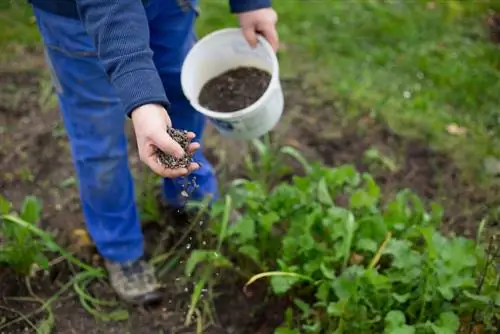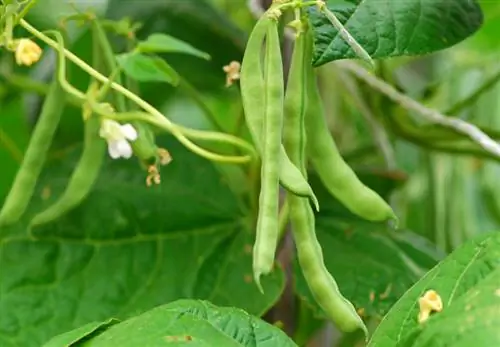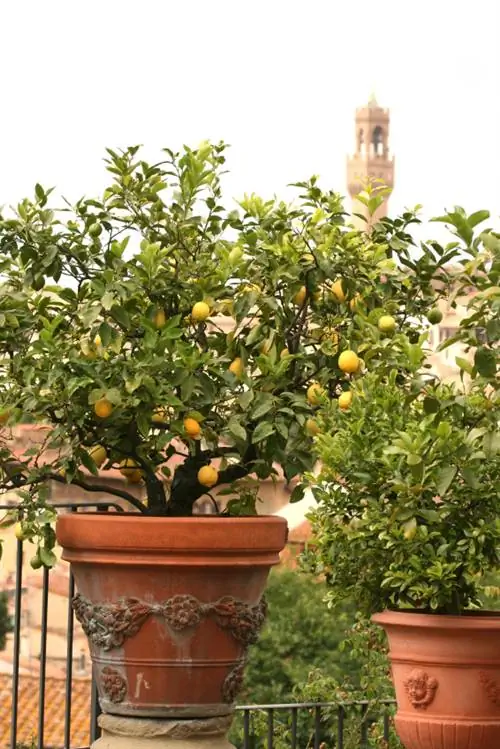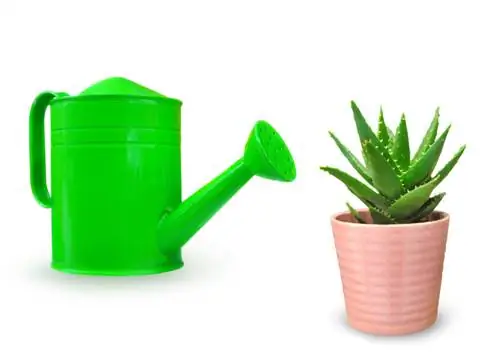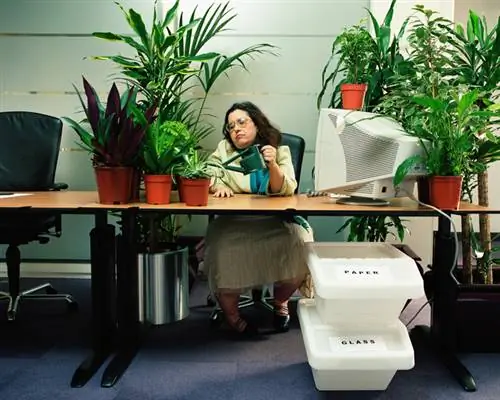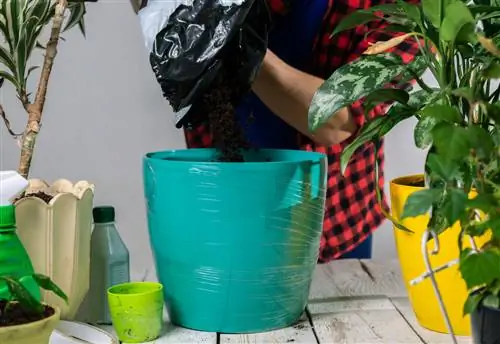- Author admin leonars@hobbygardeners.com.
- Public 2023-12-16 16:46.
- Last modified 2025-01-23 11:21.
The bigger the garden, the more compost you need to optimally supply your plants with this valuable natural fertilizer. There is no easy answer to the question of how much compost is needed per square meter of planted area. It depends on the nature of the soil as well as the plants growing in the garden.
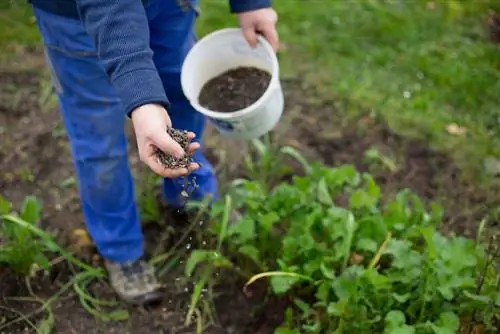
How much compost do I need per square meter of garden?
Around 3 liters of compost is usually recommended per square meter of garden bed. For heavy-feeding plants, the amount can be increased to up to 4 liters, while for low-feeding plants a maximum of 2 liters is sufficient.
How much compost per square meter is necessary?
As a rule of thumb, you should expect three liters of compost per square meter of garden bed.
However, this value can vary greatly if high- or low-nutritive plants are to be fertilized with the compost.
- 3 liters of compost per square meter
- for heavily consuming plants up to 4 liters
- for low-consuming plants a maximum of 2 liters
That's why compost is such a good fertilizer
Fertilizing with compost adds many useful microorganisms to the soil. This significantly improves soil he alth.
Before adding the compost, loosen the soil a little. Rake the material lightly into the soil.
Fresh compost must not be added to the roots or to cuttings and young plants.
Use very acidic compost
When composting walnut leaves, thuja and lawn clippings, the compost can be very acidic. It is therefore advisable to mix it well with other materials and only add a few of these substances to the compost at a time.
Very acidic compost is only suitable for ericaceous plants such as azaleas, hydrangeas, rhododendrons etc.
If you want to use it to supply other garden plants, you should lime the compost to improve the pH value.
Do soil analysis
Actually, it is hardly possible to over-fertilize a garden with compost. The nutrients are released very slowly. In contrast, mineral fertilizers are much more problematic.
If you are not sure what your garden soil is like, you should take soil samples from various places and have them analyzed in the laboratory. This is particularly useful if you have compiled the compost on one side.
So you can determine exactly which nutrients are missing in which areas and improve them with the appropriate amount of compost or other fertilizers.
Tip
A good compost composition ensures very high-quality humus. Mix wet and dry materials and never add too much of one substance to the compost heap at once.

